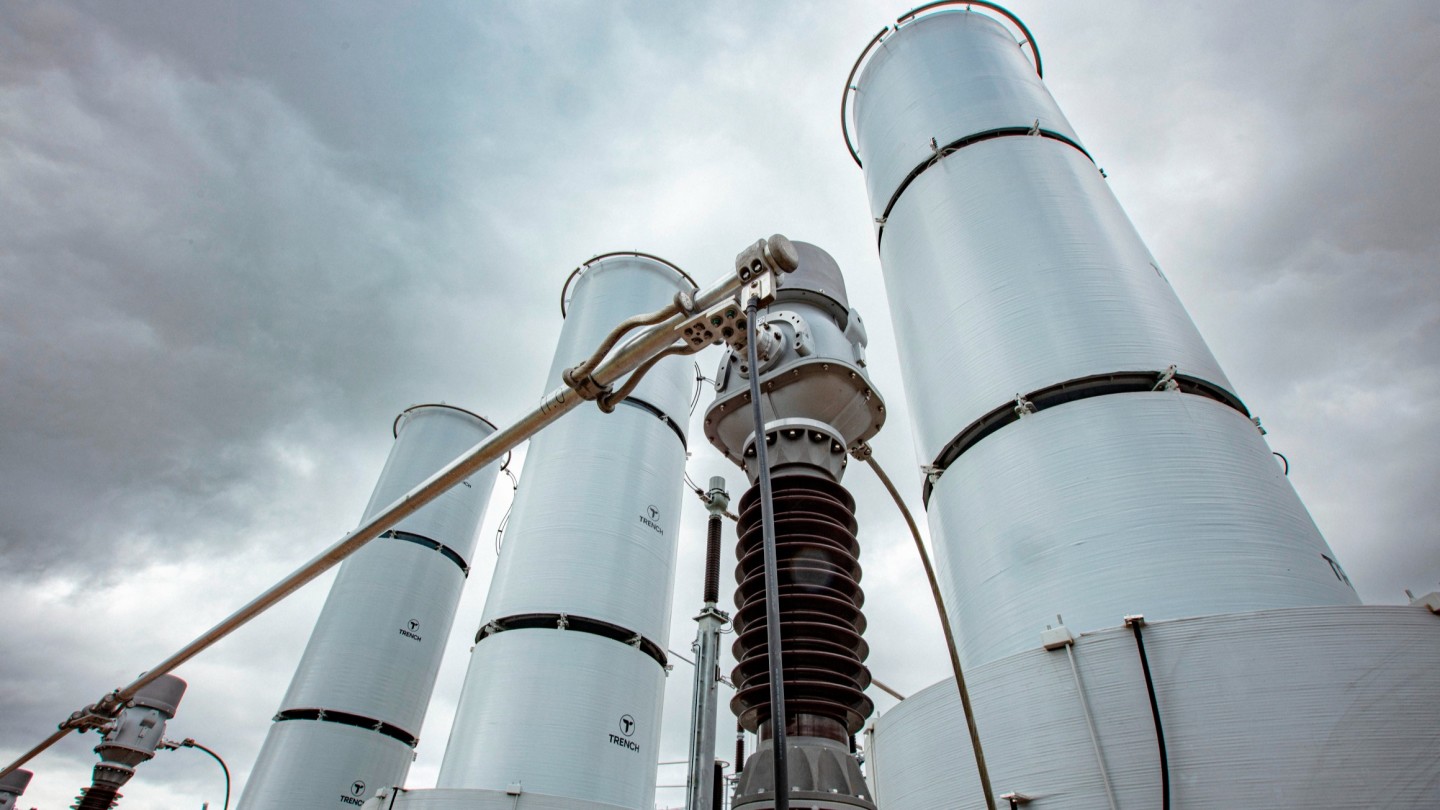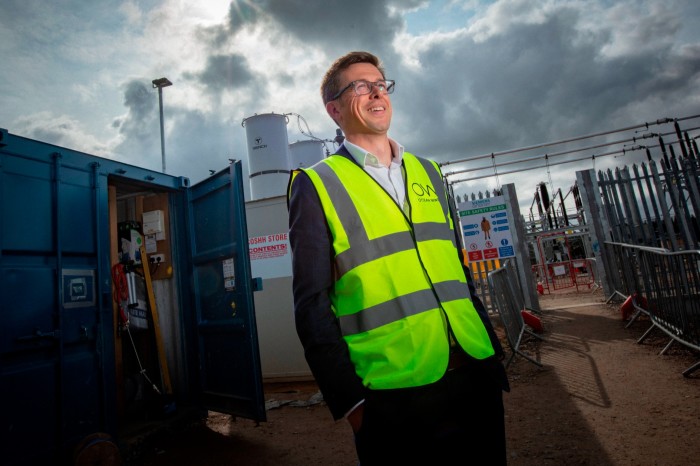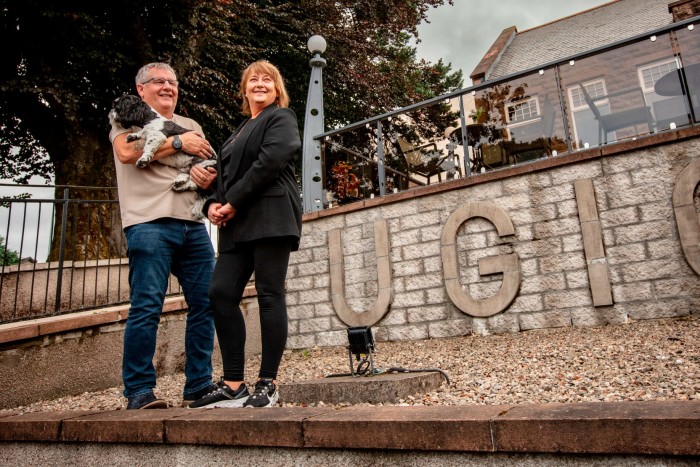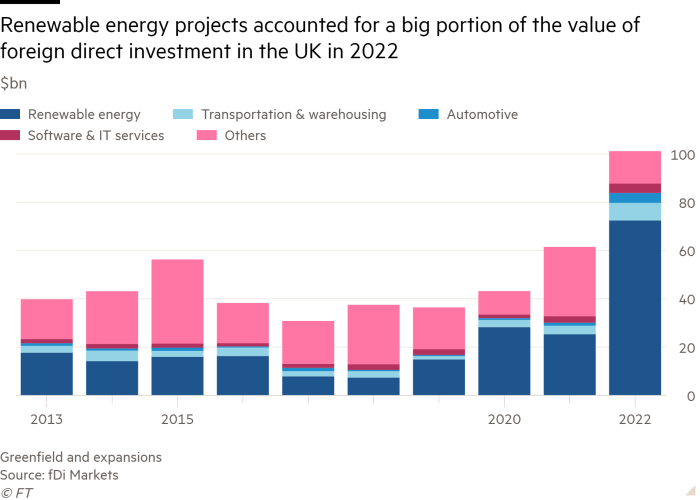‘We need tangible benefit’: Does investment in UK renewables create jobs?

Roula Khalaf, Editor of the FT, selects her favourite stories in this weekly newsletter.
The small town of Keith in the north-east of Scotland used to be famous for being home to the country’s “oldest working distillery”, which dates back to 1786.
But now it is also becoming known as a hub for Scotland’s growing wind industry, with a sprawling new electricity substation set to handle power generated by the Moray West wind farm, 50 miles out in the North Sea.
However, while foreign investors have poured billions into wind power in the area, many in Keith complain that it is bypassing the local community.
“[We need] tangible benefit other than a pound sign on a spreadsheet for a company down south,” said Marc Macrae, a Conservative member of Moray council, where Keith is situated.
“That’s the thing that frustrates people in Moray, when they see these things being built and lorries going past. It is just flowing through [and] not helping us.”
Green energy has made an outsized contribution to foreign direct investment flows into the UK, reaching an estimated $101bn in 2022, according to an analysis of data from fDi Markets, an FT-owned company that tracks cross-border greenfield investments.
The data showed that more than two-thirds of this — over $72bn — was channelled into renewable projects, with the lion’s share in Scotland.
However, renewable projects accounted for less than 3,800 jobs of the nearly 80,000 generated by FDI across the UK last year, according to government data.

The figures highlight how investment in renewable industries, which is crucial in the drive to shift away from fossil fuels, does not always generate long-term jobs or boost local economies.
Robbie Martin and his partner Mhorag McKenzie, said their hotel in Moray enjoyed an occupancy of about 95 per cent with as much as 70 per cent of its clientele linked to nearby jobs at wind farms. Still, Martin said he was concerned by a lack of jobs for local residents.
“I don’t know a lot of local boys who work there . . . [it is] a lot of contractors,” he said.

Local politicians and businesses point out that Moray’s wind turbines are imported, with much of the specialised workforce needed to erect and maintain them also drawn from elsewhere.
“There’s very few local jobs because the wind turbines are not manufactured in the UK,” said Derek Ross, an independent councillor in Moray and a critic of wind farms, which he said spoil the environment and put pressure on infrastructure.
Supporters of wind energy say job creation will accelerate as the industry matures. Adam Morrison, UK country manager for Ocean Winds, developer of Moray West, said the benefits already accrued to professional and services companies were under-appreciated.

He added that the developer was also conscious of the pressures to demonstrate long-term job opportunities beyond the 1,000 roles the Moray West project would create during its construction phase.
“Sometimes the challenge that renewables projects face is that one wind farm on its own doesn’t create a lot of visible jobs . . . [but with] hubs of large-scale projects, it really starts to snowball,” he said.
Despite the small number of jobs so far seen in Keith, some believe that foreign investment in offshore wind has nonetheless been a boon for the area, which mostly missed out on the North Sea oil boom of the 1970s.

“It’s great to have Keith as the renewable hub for Moray,” said Bryony Beck, a development officer at a local regeneration partnership, which is part-funded by contributions from wind developers. “It would be in a very dire place compared to where we are now [without it].”
Scotland’s strong offshore winds, gently shelving seabed, and skilled workers from an oil and gas industry that supports about 94,000 jobs in the country, mean it is in a strong position to benefit from the development of wind energy.
The government in Edinburgh has said it expects the transition to net zero to create 77,000 “low carbon” Scottish jobs by 2050. The Offshore Wind Industry Council, a UK government and industry forum, said in June that about 30 per cent of the UK’s approximately 32,000 offshore wind jobs were in Scotland.

Paul de Leeuw, director of the Energy Transition Institute at Robert Gordon University, noted that most jobs in offshore wind were in “building things, rather than operating things”.
But he noted: “If we get it right, there are an awful lot of good quality jobs here, and there are export opportunities as well.”
He added that communities could also benefit from jobs developed locally as part of the shift to cleaner energy projects alongside wind farms, such as in hydrogen, carbon capture or ports.
The UK’s FDI challenge
Britain is struggling to attract the overseas investment needed to boost economic growth. In a series of articles, the FT examines the reasons behind the decline and what can be done to reverse it.
UK chancellor urged to create ‘concierge service’ to attract FDI
Why is the UK struggling to attract foreign direct investment?
Swindon’s investment challenge: former boom town seeks to revive its fortunes
Carl Sizer, head of regions and platforms at PwC UK, said wind “will definitely be a great source of jobs” and the question was “whether or not we can align it with locations that have suffered from de-industrialisation”.
Mike Duncan, development manager for the Federation of Small Businesses for the north-east of Scotland, said his organisation’s members welcomed the opportunities to win contracts along the renewables supply chain.
“There was oil and gas out of Aberdeen and there was a lot of construction of oil rigs in the Cromarty Firth in the Inverness area, [and now] Moray does find itself in the middle,” he said. “Maybe it is the opportunity to have our own renewables boom.”

Comments